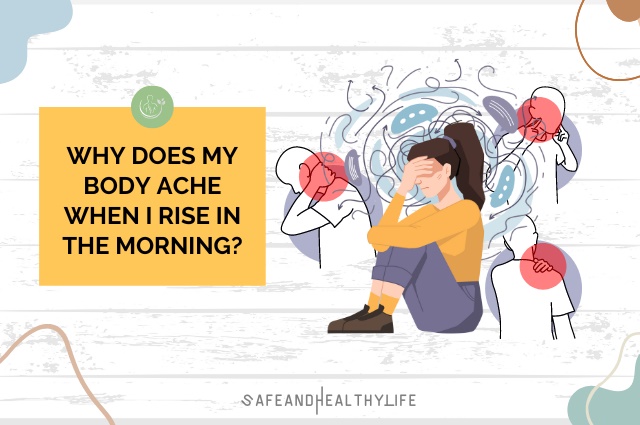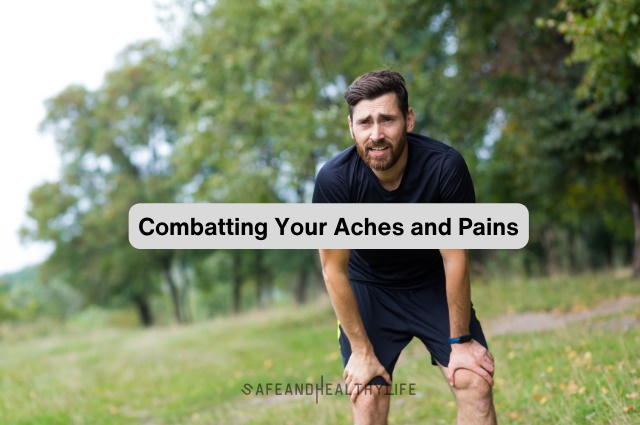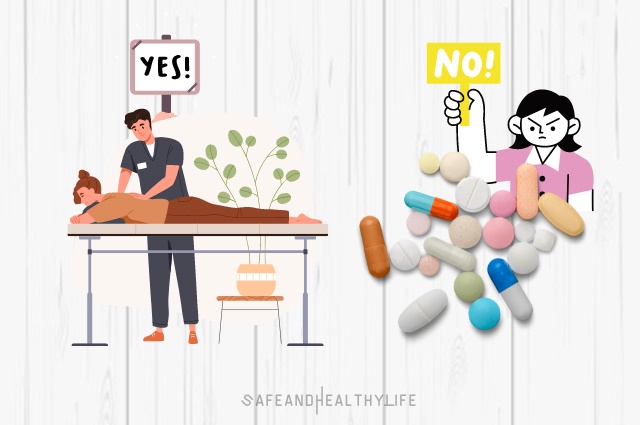
As we grow older, it’s a common experience to feel our bodies gradually losing their youthful vigor. The frequent complaints are muscle soreness and joint discomfort. But what causes these issues, and what can we do to alleviate them?
There are numerous underlying reasons for the aches and discomfort you’re experiencing. Identifying the root cause is the first step toward recovery.
Often, injuries and strains from our younger years come back to bother us. If you were involved in sports or suffered an injury or trauma in your youth, there might have been symptoms that went untreated. These symptoms were easy to overlook when you were younger.
However, as we age, our body’s capacity to handle these stresses diminishes.
The Root Cause
There are several reasons why you might wake up feeling sore in the morning.
Here are a few potential causes:
- Exercise: Regular exercise is undoubtedly beneficial for your overall health, but it can cause muscle tearing. As the muscles repair themselves, they strengthen. This process is normal, and the soreness typically subsides after a few days. However, sometimes your soreness might be due to an injury or insufficient stretching or warming up.
- Bad Habits: Prolonged sitting can cause as much stress and strain on your joints as exercising can. Sedentary behavior, coupled with poor posture and lack of movement, can lead to muscle and joint stiffness and soreness.
- Injuries/Accidents: Injuries can often be undiagnosed or misdiagnosed. Whiplash is a common injury that often goes untreated, causing lasting damage to muscles and nerves. Lack of treatment and proper care can lead to a lifelong struggle with chronic pain.
- Existing Conditions: Diseases like arthritis and fibromyalgia cause long-term damage to nerves and joints. These and many other illnesses are incurable and can lead to a lifetime of battling chronic aches and pains.
- Excessive Weight: Being overweight puts a significant strain on joints and muscles. The heavier you are, the harder your body has to work. Along with being overweight come a host of unhealthy habits. Poor dietary choices, a sedentary lifestyle, and a lack of exercise exacerbate the issue further. Unused muscles, due to being overweight and not exercising, become stiff and prone to injury.
Combatting Your Aches and Pains

The best way to fight the aches and pains that sneak up on you as you sleep is prevention. Most morning soreness and stiffness are largely due to disuse. If you don’t regularly use and maintain your body’s muscular systems, then you’ll likely wake up feeling sore.
So, how can you combat the stiffness and keep it at bay?
Treatment Options
- Warm Up: Regular exercise can significantly reduce your aches and pains. Muscles lose size and tone as you age. Without maintaining them, muscle fibers will also reduce in number and size. The tissue will slowly be replaced with tough fibrous tissues, making it more difficult to move. Not only can exercise reduce the loss of muscle and help maintain softer muscle tissues, but it can also help reduce bone loss. Physical activity is just as important later in life as it is when you are young.
- Stretch: A regular routine of gentle stretches before bed and first thing in the morning can help to keep things loose. Yoga is a great way to get a little stretching in and keep your body limber while also sneaking in a little workout. If you have a desk job or are sedentary for long periods throughout the day, take little breaks. Stretching in your seat or near your desk at regular intervals can help prevent stiffness and poor posture. Getting up to get a drink of water or taking the stairs rather than the elevator are great ways to get your muscles warmed up.
- Your Chiropractor: Chiropractic adjustments can help reduce inflammation and joint stiffness. Regular chiropractic care can help to increase your joint health and give you a greater range of mobility, as well as keep the joints soft and pliable and less prone to injuries and strains. Athletes that get regular chiropractic attention are less likely to suffer major injuries to their joints and muscles because they are softer and more supple. Cold muscles are more likely to tear and become injured, and the same thing applies to your joints. The best way to ensure that you won’t injure yourself is to warm them up.
Pain Medications Aren’t a Great Solution

If you are suffering from an injury, your doctor has likely prescribed pain medications, muscle relaxants, or both. These medications can be helpful and even necessary at times, but what if your injuries could heal faster with fewer long-term side effects?
While there are many great over-the-counter options that are relatively safe, opiates are addictive and have severe side effects associated with them.
Another issue that arises with the use of pain medications is that sometimes it can mask symptoms of your injury. The lack of pain felt could lead to lasting damage and an improperly healed injury.
You may think to yourself that anti-inflammatory medications are harmless, especially if they are sold over the counter. This is generally true, but as with any medication, long-term use can produce unwanted side effects.
Current recommendations are to use NSAIDs (nonsteroidal anti-inflammatory drugs) like ibuprofen for no more than 30 days. Dosing can range from 200 mg to 400 mg all the way up to 800 mg, so be sure to read all labels carefully to prevent overdosing issues.
Many people who use anti-inflammatory and pain-reducing medicines fail to address the causes of their pain. They also fail to understand the long-term consequences of some pain medications:
- Heart attack: An excessive use of these drugs can cause unsafe increases in blood pressure which can possibly lead to heart attacks.
- Heartburn and stomach pain: Excessive or extended NSAIDs can block the production of chemicals that protect the stomach’s lining, leading to digestive juices building up and damaging the intestines and esophagus. Eating food when taking NSAIDs can help reduce this effect but the longer you use them the more harm the drugs can cause to your digestive system.
- Anemia: NSAIDs can cause internal bleeding which leads to anemia. The anti-inflammatory properties of NSAIDs can act like a blood thinner as well which can lead to anemia.
Rather than taking an anti-inflammatory, there are safer healthier options. Keep up with a regular exercise routine. Visit an experienced chiropractor for regular care. And make healthy lifestyle changes that keep your body in tip-top shape.
About The Author:
Stacey Smith is a freelance health writer. She is passionate to write about women’s health, dental health, diabetes, endocrinology, and nutrition and provides in-depth features on the latest in health news for medical clinics and health magazines.




